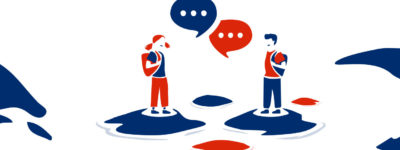Arcipelago Educativo

Learning gaps between students from different social backgrounds emerge from the earliest years of schooling and can, if not countered, translate into real inequalities in future educational and employment opportunities. Since a large part of learning disparities depend on the family environment, it is likely that during long summer breaks such disparities increase faster. However, the literature on so-called “Summer Learning Loss” and the effectiveness of summer learning support programs is partial and mainly focused on the case of the United States. Italy lacks a useful empirical basis to be able to inform public decisions. The evaluation of Arcipelago Educativo is a first attempt to fill this gap.
The project
Since 2020 Save the Children Italy and Fondazione Agnelli have been conducting a national initiative, Arcipelago Educativo, aimed at countering the summer learning loss of children and adolescents. The Arcipelago Educativo program, in its 2022 edition, targeted students in the last two years of elementary school and those in secondary school in ten Italian cities (Milan, Turin, Marghera, Ancona, Aprilia, Bari, Naples, Rosarno, and Palermo). The program offered two types of activities, group teaching workshops and personalized tutoring sessions with the aim of supporting participants’ growth and recovering learning related to the acquisition of basic skills: literacy-functional competence and math-science competence. To evaluate the effects of Arcipelago Education on students’ learning at the end of the summer break, a randomized controlled trial involving more than 1,000 students was conducted. The trial protocol has been registered at the AEA RCT registry.
To deepen our understanding of the causal mechanisms triggered by this intervention and to better understand the intervention’s impact from the beneficiaries’ perspective, in addition to the RCT study we conducted a qualitative study where we implemented the ‘Most Significant Change’ qualitative evaluation method on the 2023 edition of the intervention.
Results
The results of the study show that the program had significant positive effects on students’ learning levels. The effects are more consistent in disciplines pertaining to the language area than in maths. The available data also suggest that the program more than compensated for the (relatively) small summer learning losses estimated in the sample under study. The effects are mainly found among elementary school students and among students with special education needs.
The results of the qualitative research showed how the programme succeeds in creating a climate of ‘non-judgement’ in which participants feel free to express themselves and are less afraid of making mistakes. The children’s stories also highlighted how the programme increased their sense of self-efficacy, and confidence in achieving their goals as well as their level of empathy and respect for others.
People
Publications
Azzolini, D., Bazzoli, M., Burlacu, S., & Rettore, E. (2025). Starting the School Year on the Right Foot: Effects of a Summer Learning Program Targeting Vulnerable Students in Italy. Educational Researcher. https://doi.org/10.3102/0013189X251361799




